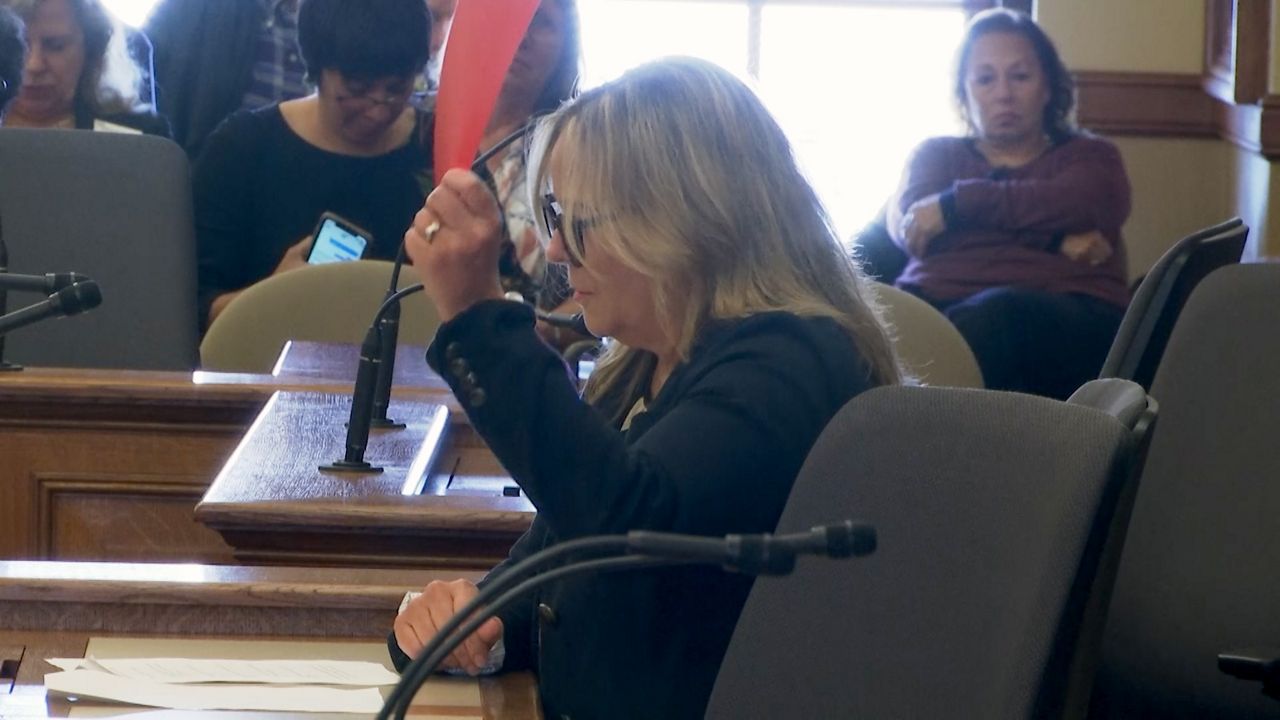MADISON, Wis. — A plan by Wisconsin Republicans to put legislative map drawing in the hands of nonpartisans instead of lawmakers has drawn criticism from Democrats who argue it’s a way to get around a court that seems likely to rule their favor.
Last week, the Senate elections committee held a public hearing on the proposal, which awaits full approval from that chamber. While people were happy about the conversation, many said the idea for a new system was moving too fast.
“Red flag when the bill was conceived as a method to head off a politically unfavorable decision by the Wisconsin Supreme Court on our current gerrymandered maps. Red flag when there was no input from stakeholders like the voters,” Vicki Aro-Schackmuth of Hartland told lawmakers.

Similar to the Iowa model, the plan calls for nonpartisan staff at the Legislative Reference Bureau (LRB) to draw the boundaries.
State lawmakers could only take an up-or-down vote on those maps and would not be able make any changes themselves. Instead, the LRB would draft another version based on nonpartisan criteria under the bill.
Any votes on the maps would also need to be bipartisan, but only with simple majority. Those concerned with the legislation argue that threshold isn’t enough.
“If the Legislature takes that step of rejecting map one and map two, you want to make sure there’s that 3/4 supermajority for map three, and you think after that, we ought to say, ‘Look, this process isn’t working, let’s have the courts step in,’” State Sen. Mark Spreitzer, D-Beloit, clarified when a citizen raised concerns during last Thursday’s hearing.
Unlike Iowa’s model, the system debated in Wisconsin doesn’t have a judicial review process if lawmakers get stuck and disagree on the maps presented to them. Democrats have argued for a similar process with judicial involvement, especially now that liberals have a majority on the state Supreme Court.
Republicans, however, counter that keeping the courts out is fairer because political winds can shift.
“As a Republican legislator, I could get nine of my colleagues, like I said, to hold [up] a map, and I’ll just hold it three times and not let it pass, and I want to take my shot at the court because it’s now conservative again,” State Sen. Romaine Quinn, R-Cameron, explained while giving a hypothetical example.
While the high court won’t always have a liberal majority, some Wisconsinites said Iowa’s political climate is different, and they can’t trust lawmakers in the Badger State to get along, so they want some way to resolve disputes.
“SB 488 and AB 415 will inject more poison into the political culture for generations to come,” Dave Miller, who lives in Fitchburg, said.
“We are bringing in a nonpartisan commission to do this work,” State Sen. Dan Knodl, R-Germantown, later responded. “If we are already making allegations that the LRB is partisan, I think that’s unfortunate.”
Lawmakers in the state Assembly passed the bill last month, so if the legislation makes it to the full Senate floor and passes, the final decision would be up to Gov. Tony Evers.
Though Evers has floated similar ideas of his own, the governor is all but certain to veto the effort by Republicans, having called it “bogus.”



